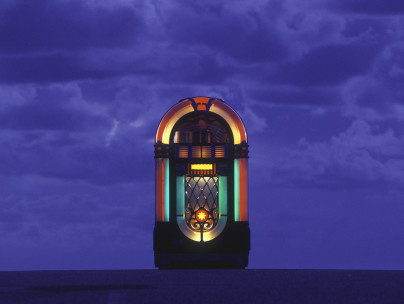Twenty years ago this week, President Bill Clinton signed one of the most important pro-music laws ever enacted, laying the foundation for the digital streaming revolution that has become so central to our lives today.
The Digital Performance Right in Sound Recordings Act of 1995 gave artists and labels a federal performance right for the very first time. It was a remarkable piece of bipartisan foresight. The impetus for the law, dubbed the "celestial jukebox" at the time, was the realization that technology would soon give music lovers the option to listen to their favorite music wherever, whenever they wanted. Today, we know these "celestial jukeboxes" as Spotify, Apple Music, rDio, Deezer, Rhapsody and others. The law also paved the way for download services like Amazon and iTunes as well as companies such as SiriusXM and Pandora to build businesses.

We recently reported that the music business now earns more than 75 percent of its revenues from digital formats -- far outpacing virtually any creative industry. And, unless you've been living under a rock, you know that streaming services are surging in revenue growth and popularity. For fans and music lovers of all stripes, this access to different music has opened huge creative vistas, freeing us from the confines of homogenized playlists and putting the entire world's music at our fingertips (and our earbuds). No kid will ever again be trapped in a town or a world where no one else listens to the music that he loves.
While the economics of the music business continue to change, everyone who loves music must celebrate the incredible access to quality music that we all enjoy today.
But that doesn't mean our work is done. We need change if music creators and fans will continue to benefit from the foundation Congress laid twenty years ago.
Today, it is clear that well-intentioned government regulation is devaluing the vibrant, vital music ecosystem. These regulations have the potential to snatch defeat from the jaws of victory by creating a "value gap" that undermines the very purpose of the law passed in 1995 to protect and compensate music creators.
Take, for example, the government license created for SiriusXM and Internet radio companies. The intent was to ease administrative burdens, yet that benefit has given way to below market rates that rob artists and labels of hundreds of millions of dollars each year. Companies with billions in free cash flow or market caps pay a fraction of what others operating in the free market pay.
And what about the disheartening fact that vinyl records, which peaked in the '70s, generated more revenue for the industry last year than the billions of ad-supported on-demand streams on YouTube and similar services? This is the result of broken notice-and-takedown rules. Designed to make the digital music marketplace work better, these rules have instead become bargaining leverage for large technology companies that distort the marketplace and deprive creators of their fair share.
Then there is the fact that music creators have sent over 120 million "takedown" notices to minimal effect (the notice and takedown system seems to create more jobs for lawyers than it does musicians!). Everyone who depends on this music ecosystem has a stake in it -- including search engines, advertisers, and payment companies -- and we must all join together to find saner, more effective ways to make it work.
So let's not "mind" the value gap, let's fix it.
And, of course, when it comes to the continued yet unjustifiable regulation that lets the nearly $20 billion AM/FM radio industry pay nothing, we're talking about an abyss not a gap. Digital radio has thrived while paying for music, so why do profitable AM/FM stations continue to enjoy an exemption from this fundamental obligation? Congress should level the playing field and guarantee fair music pay for all music creators no matter what form of radio uses their work.
Congress set something profound in motion 20 years ago. We celebrate it, we honor what was accomplished, and we stand ready to build on those efforts in the years to come.
Also on HuffPost:
